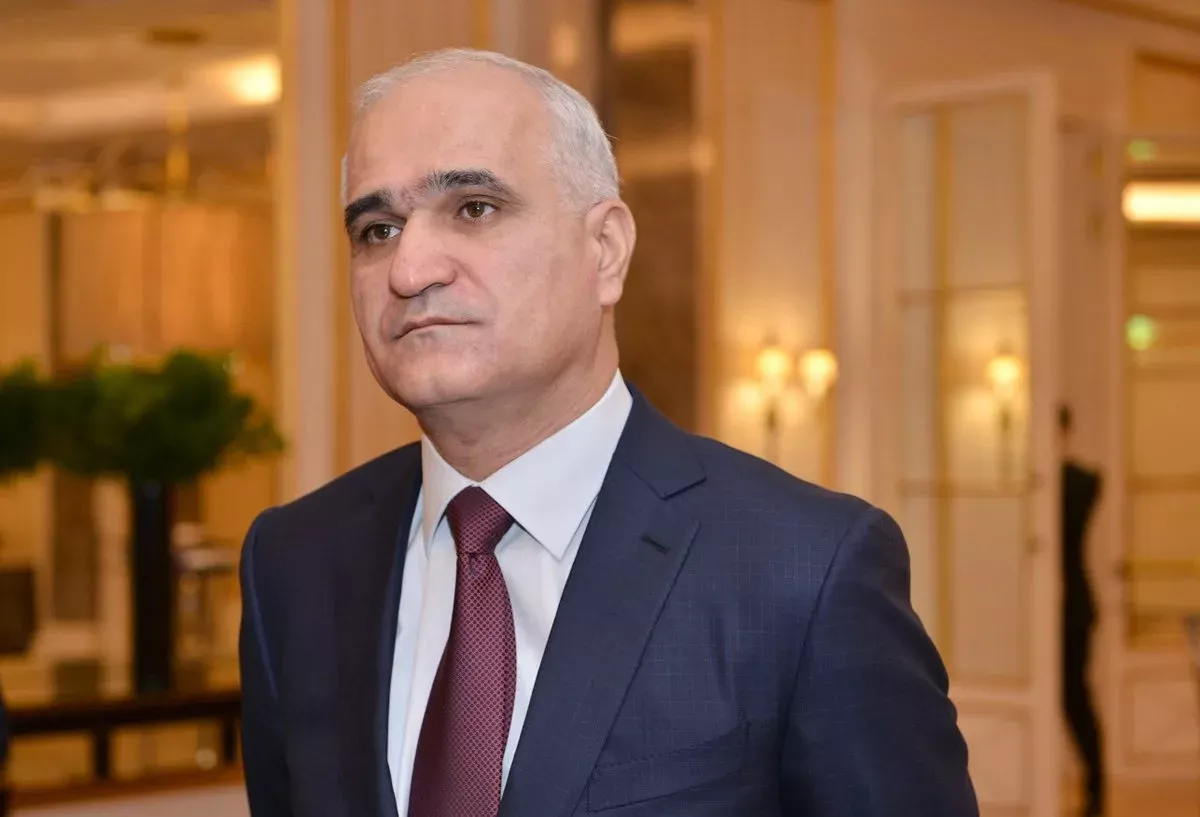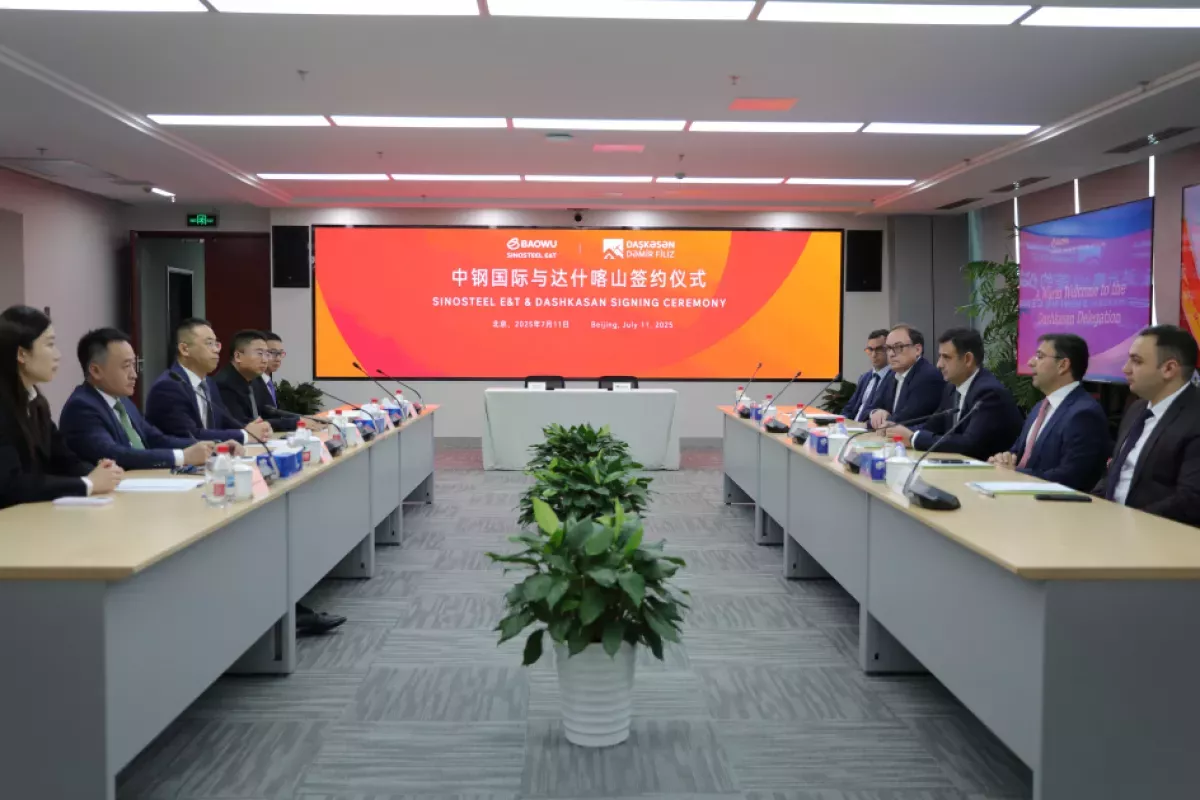China’s tech giants secure presence in Azerbaijan From digital innovation to renewable energy
China and Azerbaijan, which have been dynamically increasing their trade turnover, are now building relations at the level of a strategic partnership. Both countries are focused on expanding investment cooperation and implementing joint projects in transport, industry, “green” energy, the IT sector, tourism, and other areas.
In an interview with People’s Daily Online, Deputy Prime Minister of Azerbaijan Shahin Mustafayev highlighted the progress achieved so far and outlined new prospects for collaboration along the Azerbaijan–China business track.
Meanwhile, delegations from the China Export & Credit Insurance Corporation (Sinosure) as well as the China Road and Bridge Corporation visited Baku. During the visit, they discussed infrastructure and energy projects and signed a framework agreement.

Cooperation between Azerbaijan and the People’s Republic of China (PRC) is focused on strengthening trade, economic, and investment ties. Numerous meetings and negotiations between Azerbaijani President Ilham Aliyev and his Chinese counterpart Xi Jinping have played a key role in elevating bilateral relations to a strategic partnership.
This synergy has been most evident within the framework of China’s Belt and Road Initiative, which has contributed to an increase in transit traffic along the Trans-Caspian International Transport Route (TITR) and to the liberalisation and simplification of mutual trade.
For years, Azerbaijan has remained China’s largest trading partner in the South Caucasus, accounting for nearly half of the region’s total trade turnover with China. Last year alone, trade between the two countries increased by 21%, reaching $3.7 billion.
“China is Azerbaijan's fourth largest trading partner and the largest source of imports. In January-September 2025, trade turnover between the two countries reached $3.4 billion, increasing by 28% compared to last year, which fully confirms that the economic and trade cooperation between the parties is continuously deepening and has great potential,” said Shahin Mustafayev in an interview with People’s Daily Online.
In recent years, Azerbaijan has intensified its trade and economic engagement with China, increasing business missions, participating in major Chinese exhibitions, and expanding contacts through the Invest in Azerbaijan platform. Additionally, through trade and wine houses, the country has been successfully promoting its domestic products in China’s vast market. These efforts not only drive overall trade growth but also help boost Azerbaijan’s exports.

According to the latest data from the State Customs Committee of the Republic of Azerbaijan, in the first three quarters of this year, the export of Azerbaijani goods to China increased 5.2 times, exceeding $70.6 million. Despite the significant gap between exports and imports—which is typical for all South Caucasus countries— Azerbaijan exports almost no energy resources to China. Exports are primarily chemical and processing industry products, including those produced in industrial clusters, as well as food items and other non-oil goods.
In recent years, alongside growing trade and transport initiatives, Baku and Beijing have increasingly focused on investment cooperation and the establishment of joint ventures. Chinese companies are actively participating in industrial and energy projects in Azerbaijan. Around 370 companies with Chinese capital are registered in the country, with Chinese investment in Azerbaijan reaching $950 million. According to Chinese sources, Azerbaijani investments in China are estimated at roughly $300 million. When including funds from the State Oil Fund of the Republic of Azerbaijan (SOFAZ), the total volume of investments approaches $2.1 billion.
“The parties have achieved significant results in areas such as green energy, smart energy networks, electric buses, and industrial parks [...] Currently, a number of Memoranda of Understanding have been signed on investment in the digital economy, smart logistics, Internet of Things, industrial digitalisation, technological innovation, and personnel exchange,” said Mustafayev.
He noted that Azerbaijan views digital transformation as a key priority for government administration, business development, and the modernisation of public services. “We intend to learn from China's advanced experience in digital economy, smart city construction, and green-low carbon development, and to further deepen the strategic cooperation between the two countries,” Mustafayev emphasised.

Chinese companies are showing strong interest in Azerbaijan’s green energy projects. Altogether, renewable energy initiatives with a total capacity of around 2 GW are planned. Chinese contractors are already involved in building a 160 MW solar power plant in Fuzuli and in constructing the country’s largest wind farm, the 240 MW Khizi–Absheron project. Soon, construction will begin on the 100 MW Gobustan solar power plant, the first renewable energy project in Azerbaijan developed through a direct Chinese investment auction.
Negotiations are also underway with Sichuan Sunsync Photovoltaic Technology, which plans to establish a solar panel manufacturing facility in the Alat Free Economic Zone (ADEZ), with part of the production intended for export. Renewable energy cooperation also forms the basis of collaboration between China Energy Engineering Corporation Limited (Energy China) and SOCAR, the State Oil Company of Azerbaijan. Future projects under discussion include offshore wind farms, floating solar panels, and initiatives for wastewater treatment, recycling, and reuse, as well as improving water resource management.
In addition, Chinese companies serve as key contractors and equipment suppliers in Azerbaijan’s conventional thermal power sector. In June of 2025, the “8 November” Thermal Power Plant in Mingachevir, with a capacity of 1,880 MW, was commissioned.
As part of programs to improve energy efficiency in the transport sector, Azerbaijan signed an agreement with BYD Company Limited to purchase electric buses and localise their assembly in Sumgayit. Another important area of cooperation is attracting Chinese technology and investment to Azerbaijan’s non-oil sectors, including high-tech industries, innovation, industrial digitalisation, agriculture, and artificial intelligence.

Industrial cooperation remains a key focus. In July, a subsidiary of AzerGold CJSC — Dashkasan Filizsaflashdirma (Ore dressing) OJSC — signed an agreement in Beijing with Sinosteel Equipment & Engineering Co., Ltd. Under this agreement, the Chinese company will prepare a feasibility study to reassess mineral resources, develop a new mining plan in Dashkasan, and construct an iron ore processing plant at the site.
And this is just the beginning. The recent visit to Baku by delegations from Sinosure and the China Road and Bridge Corporation (CRBC) underscores the growing scope of cooperation. During talks with Azerbaijan’s Deputy Minister of Finance, Anar Karimov, the focus was on expanding economic and financial collaboration, including the involvement of Chinese companies in infrastructure projects under the “State program on improvement of transport infrastructure in Baku and adjacent territories for 2025-2030.”
Key areas explored with Chinese partners included technical, construction, and engineering cooperation. A major outcome of the visit was the meeting between SOCAR President Rovshan Najaf and Zhang Xinming, President of Sinopec Engineering, where they discussed topics of mutual interest in oil and gas processing, petrochemicals, digitalisation, the energy transition, and advanced processing technologies. The meeting concluded with the signing of a framework agreement on cooperation.








